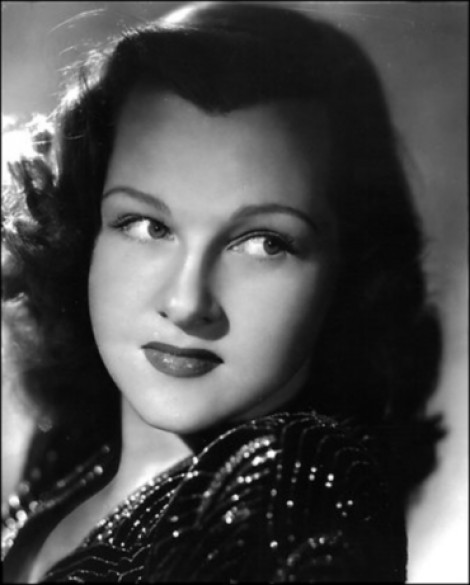The Tommy Dorsey Band was one of the epic forces in American popular music in the 1940’s setting a standard for sophisticated big band sound. Lush arrangements were highlighted by band singers that would accentuate the interaction between voice and instrument creating an American Sound that would dominate the era. Most famous of the singers propelling out of the Dorsey ensemble was the thin Italian kid from Hoboken, Frank Sinatra. His big talent soon proved too much for the multi-voice ensemble known as the Pied Pipers that provided the harmonies for the band, and he struck out on his own to eventual legendary solo status. The Pied Pipers however had another gem in the harmonic mix, and though not as well known as her male counterpart Sinatra, Jo Stafford had a terrific way with song lyrics and a voice that was effortless and perfect in pitch. The girls all wanted to meet Frank Sinatra, but the boys all wanted to marry beautiful Jo Stafford. Her voice was characterized by Johnny Mercer, the great songwriter, as honey smooth, and it was all that and more.
Jo Stafford grew up in California at a time when the state was truly the paradise of possibility. A voice as sunny warm as the climate, she soon was recognized as the lead voice by her sisters that had formed one of the many family ensembles popular in the era. Jo liked the way her voice blend as a mid register clarity and soon became part of the Pied Pipers, initially a eight member group creating an orchestral sound. Paul Weston, a member and arranger for Tommy Dorsey, heard the Pipers and offered to arrange for them, bring them into the sight line of the premier band leader of the day, Tommy Dorsey. Dorsey struggled with the concept of such a big ensemble, finally convincing them to reduce to four voices with Stafford in the lead, and a new projection of the band was born. Sinatra was the hired singer, and the Pied Pipers were accompaniment, but when Sinatra left, the talents of Stafford started to project, and she became a recognizable star in her own right. In the video below, Stafford’s voice seamlessly blends with her male counterparts, but the honey smooth delivery sparkles like sun on morning dew:
As World War II drew to a close, Jo Stafford left the Pied Pipers and became a noted solo artist. Understated and a balladeer, she was moderately successful economically but to the artists and song writers in the business, she was considered royalty. Extremely popular with the millions of soldiers created by the WWII cauldron for her tireless work in troop support, she held a special place in the hearts of servicemen and had a permanent place on their record players and her popularity grew and grew. Both she and Sinatra became recording artists for Capitol records, where she had success, but when her now husband Weston moved her to Columbia Records she flourished in the 1950’s, becoming the first Columbia artist to sell 25 million records, epitomized by her 1957 number one hit, You Belong to Me:
Now a big star, Stafford had the universal recognition that led to both movie and TV opportunities, including her own TV show. At the height of her popularity in the early sixties, she determined to retire and raise her family, and despite pressures by many in the industry, essentially kept her word. Perhaps she saw the trends that music was taking away from melodious sound into the more jarring energy of the sixties. The extended retirement is probably one of the reasons Stafford’s beautiful voice is time trapped in our memories as a big band singer, but she could evoke deep emotion and understood lyrics in the manner of the best interpreters of the American Songbook. Jo Stafford died in 2008, as a snapshot of a time, but Johnny Mercer’s summation of Stafford’s talent as honey smooth remains definitive. We finish with a period piece of music, the 19th century Shenandoah, made epically timeless by Jo Stafford’s beautiful way with great music.

I hadn’t heard of Jo Stafford. Thanks for sharing this. When listening to Shenandoah, I can hear the Celtic roots of this song. Her voice truly is “like honey”.
Wow, what a beautiful voice. I have heard the songs but didn’t know much about Jo Stafford. Thanks for sharing.